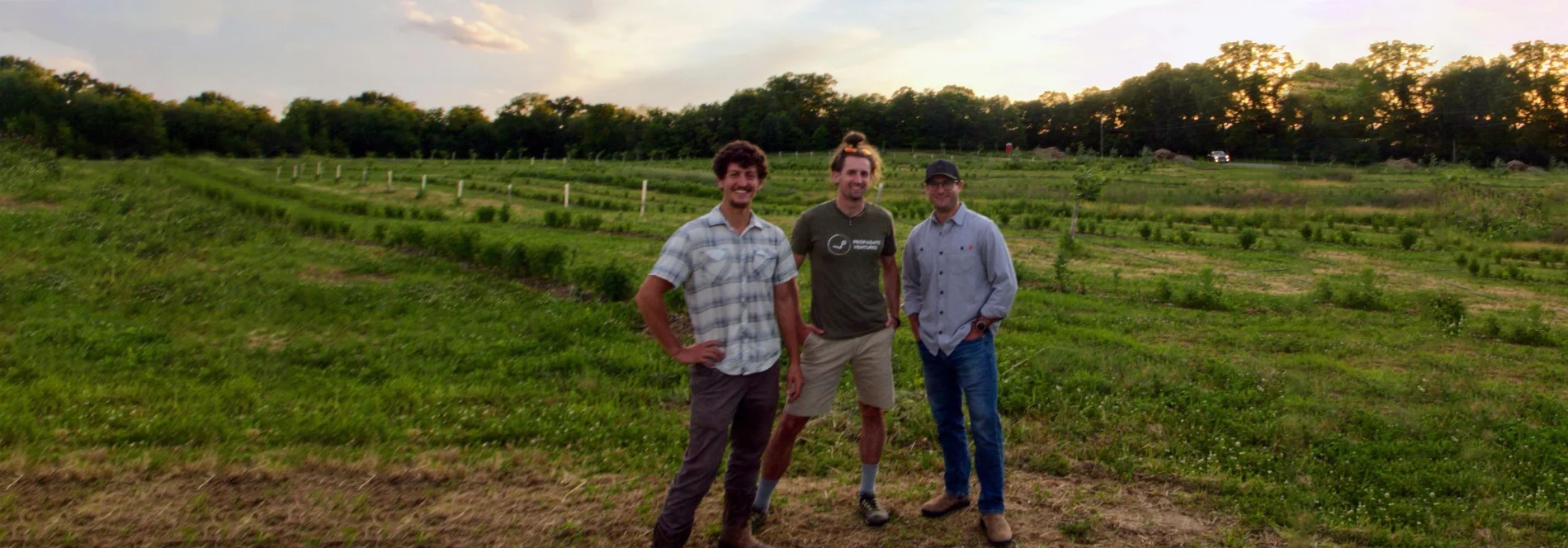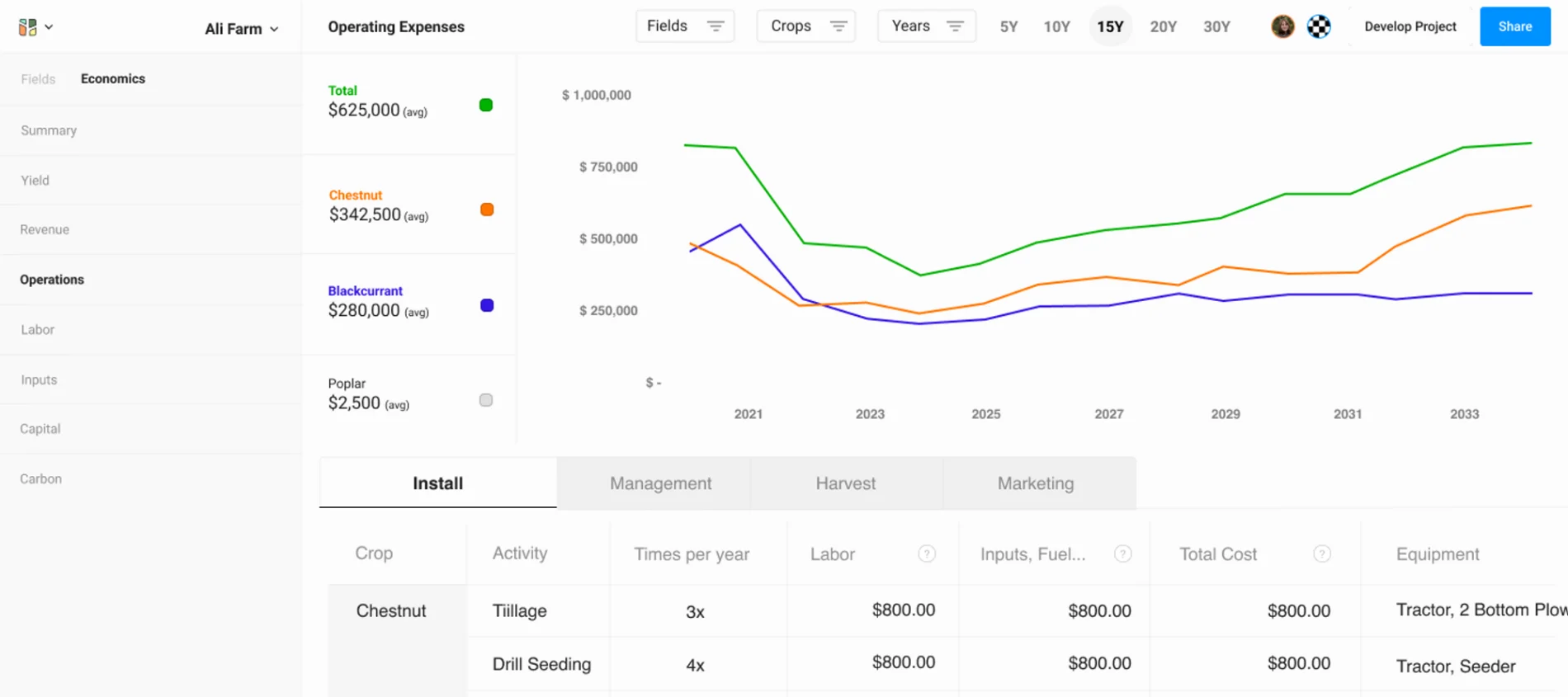
How agroforestry can make a sustainable and lasting impact on farms
Fund Updates · Jan 5, 2023
Climate change is one of the most pressing challenges of our time today. From shifting weather patterns to threatened food production and reduced biodiversity, the impacts of climate change have affected many,
especially farmers
. Increasing costs of production and falling commodity prices have plunged over
50 percent of US farms into losses
, leaving farmers vulnerable and unable to make ends meet. Compounded with growing demand
from an increasing population, it’s clear that things needed to change. For farms to be sustainable, they need the expertise and capital to grow food better and differently, leaving us to ask: How can one make a lasting impact?
In 2017, Ethan Steinberg, Jeremy Kaufman, and Harry Greene honed in on one such practice to improve farm resilience and yield - agroforestry.
Agroforestry
is a widespread practice that combines agriculture with planting trees for a healthier and diversified self-sustaining production system. This practice helps restore land and its natural ecosystems by returning the environment to its biodiverse state. Agroforestry allows farmers to reap the environmental and economical benefits
that help with mitigating climate change, sequestering carbon, reducing pollution, enhancing food nutrition, and improving soil fertility by integrating fruit, nut and timber trees with crop or animal farming systems. The three co-founded
Propagate,
a software, development, and financing ecosystem that makes it easy for farms to transition acreage to agroforestry. Ethan Steinberg recalls one memorable story that highlights why he and his co-founders were inspired to start the company. While talking with a farmer in Virginia, they realized there was a need for more agroforestry resources as the farmer shared that milling walnut timber was a profitable part of his operation, but was too capital intensive and outside the scope of his farming operation. They saw the business opportunity to improve the accessibility of agroforestry, motivating them to start Propagate. “If we did our roles correctly, we could be making a positive difference in these farmers’ lives and in decarbonizing agriculture,” says Ethan Steinberg. Propagate’s products & services include regenerative farm planning and management software (
Overyield
), commercial agroforestry development (Propagate Management), and a financing platform to unlock agroforestry at scale (Agroforestry Partners
). Their platform provides access to agronomic insights, technical assistance, and financing so that farms can reduce risk.
Propagate stands out as the premier agroforestry solution with a clear sustainable competitive advantage, which is why the TELUS Pollinator Fund is delighted to welcome Propagate to our portfolio. Their end-to-end agroforestry solution designed to drive climate action is what aligns the organization so well with the Pollinator Fund’s agriculture and climate theses of enabling sustainable food production and sequestering carbon.
Currently, Propagate advises over 20,000 acres of agroforestry, with 100,000 trees planted and an additional 760,000 trees & shrubs in the pipeline. In the past year, Propagate has also doubled business while planting an additional 37,000 trees on farms in New York, Ohio, Kentucky, and Hawaii. The TELUS Pollinator team is excited to support Propagate as they continue to expand their business and help more farmers overcome financing and knowledge barriers in order to operate more resilient and profitable farming practices.


